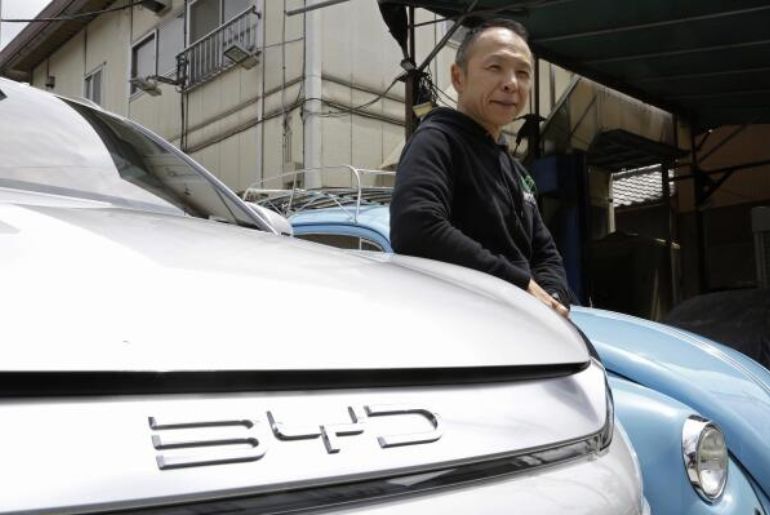Chinese electric vehicle (EV) giant BYD is preparing to disrupt Japan’s traditionally insular auto market by introducing a compact all-electric car in the country’s popular “kei” (mini-car) segment. The move marks a bold step into a market dominated for decades by local automakers such as Suzuki, Daihatsu, and Honda, potentially reshaping Japan’s small vehicle landscape.
BYD Targets Japan’s $18 Billion Kei-Car Market
According to multiple reports, BYD plans to launch its first all-electric kei car in Japan by late 2026. The model is expected to be unveiled or previewed at the upcoming Japan Mobility Show 2025, drawing significant attention from Japanese media and industry insiders.
The keicar category—characterized by ultra-compact vehicles under 3.4 meters long and limited engine capacity—accounts for about one-third of all new passenger vehicle sales in Japan. This segment is estimated to be worth around $18 billion annually, making it a lucrative and strategically critical entry point for any foreign automaker.
BYD’s entry could signal the first serious foreign competition in this sector, which has been overwhelmingly dominated by domestic brands for decades.
A Strategic Expansion Beyond Mainland Success
BYD has rapidly grown to become the world’s largest EV maker by volume, overtaking global rivals in markets such as China and Europe. However, its presence in Japan remains limited, with sales of just 6,600 vehicles since entering the market three years ago.
By entering the kei segment, BYD aims to capture Japanese consumers who prefer affordable, space-efficient, and eco-friendly urban vehicles. The company has already established dealerships in major Japanese cities and plans to expand its presence to all 47 prefectures by the end of next year.
This strategy aligns with BYD’s broader international ambition to localise EV offerings that cater to unique regional demands—an approach that has proven successful in Southeast Asia and Latin America.
Japanese Automakers on Alert
Industry observers suggest that BYD’s new kei EV could act as a wake-up call for Japan’s carmakers, many of whom have been slower to embrace fully electric models in this category.
Japanese manufacturers such as Suzuki and Daihatsu have focused primarily on hybrid or ultra-efficient petrol engines, arguing that full electrification may not yet be feasible for small, low-cost cars due to battery cost and infrastructure constraints.
However, BYD’s expertise in battery technology—particularly its proprietary Blade Battery, known for affordability, longevity, and safety—could offer a cost advantage that challenges the status quo.
“BYD’s move into the kei market highlights the growing competitiveness of Chinese EVs, not only in design and technology but also in affordability,” said a Tokyo-based automotive analyst quoted by Reuters.
A Challenge to Japan’s EV Strategy
The Japanese government has set ambitious targets to achieve carbon neutrality by 2050, encouraging automakers to accelerate EV adoption. Yet, the nation’s electric vehicle penetration remains low compared to global standards—accounting for less than 3% of new car sales.
BYD’s entry into the kei segment could push domestic players to speed up their electrification efforts. Experts believe the move may also pressure policymakers to expand subsidies and charging infrastructure to support compact EVs.
One industry report noted that Japan faces the risk of losing its dominance in the market for small, efficient cars.
BYD’s Kei EV: Expected Features and Outlook
While BYD has not released full specifications, reports suggest the upcoming KEI EV will feature a 20 kWh blade battery, offering an estimated range of 180 kilometers—ideal for city commuting. Pricing is expected to be competitive with domestic mini EVs, possibly starting under ¥2 million ($13,000), which could attract first-time EV buyers.
The automaker’s reputation for reliable battery systems and aggressive pricing could make it a formidable challenger in Japan’s urban mobility market.
Conclusion: A Turning Point for Japan’s Auto Market
BYD’s plan to enter Japan’s mini-car segment is more than just a new model launch—it represents a symbolic challenge to the dominance of Japan’s automakers on their home turf.
As the EV revolution accelerates worldwide, Japan’s response to BYD’s entry could determine whether its manufacturers can maintain leadership in compact, efficient vehicle innovation—or whether the next wave of urban EV dominance will come from China.

